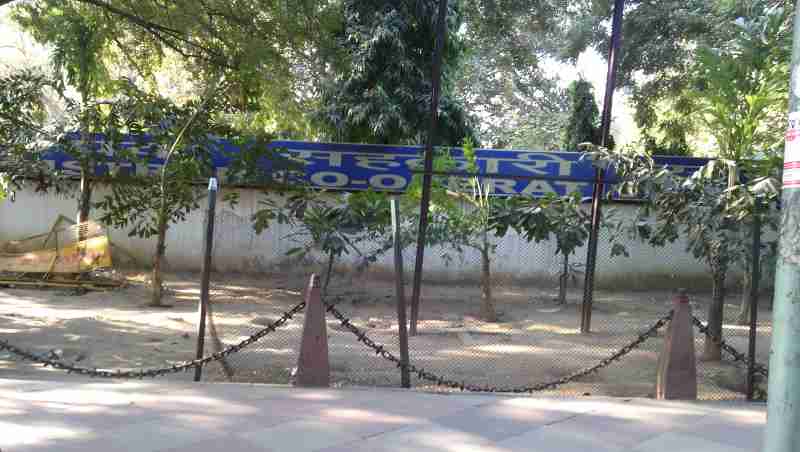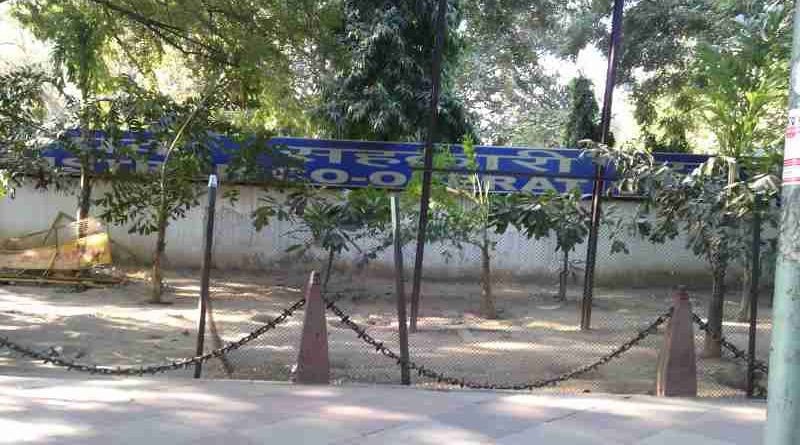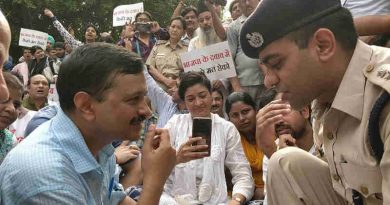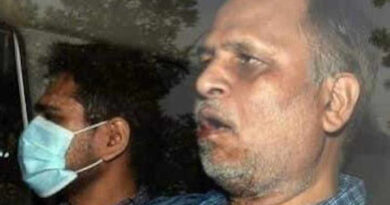Housing Society Scam: CBI Orders Jail Term for Former RCS Officers

As the RCS office of the Delhi Government is one of the most corrupt offices of India, there have been myriad cases of corruption involving RCS officials.
December 6, 2020
By Rakesh Raman
In yet another case of corruption at the office of Registrar Cooperative Societies (RCS) of the Delhi Government, a couple of former bureaucrats have been convicted by the Central Bureau of Investigation (CBI).
A special CBI court has sentenced former Registrar at RCS office R. K. Srivastava (Retd. IAS officer) and Deputy Registrar Padam Dutt Sharma to two years of rigorous imprisonment in a case of reviving a housing society on the basis of forged documents. They have also been fined Rs. 35,000 each.
In the case, three private persons — Subhash Chander, Mayank Goswami, and Ashwani Sharma — have also been awarded four years of rigorous imprisonment each along with fines.
In a press release issued on November 27, CBI said that it had registered a case in 2006 against Subhash Chander (private person) and others on the allegations that the accused entered into criminal conspiracy with RCS officials to revive Shree Radhakrishna Cooperative Group Housing Society Limited in Delhi on the basis of false, forged, bogus documents.
After investigation, a chargesheet was filed against 12 accused in the Court of Special Judge for CBI Cases, New Delhi. The Trial Court convicted the said accused and acquitted the five accused. Two accused expired, according to the CBI.
As the RCS office of the Delhi Government is one of the most corrupt offices of India, there have been myriad other cases of corruption involving RCS officials.
CORRUPTION CASES OF RCS OFFICIALS
Earlier, a special CBI judge in Rohini, Delhi had convicted an RCS official to undergo 5 years of rigorous imprisonment with a fine of Rs. 2 lakh for irregularities relating to a Cooperative Group Housing Society (CGHS) case. A number of other persons were also convicted in this case and sent to Tihar Jail in Delhi to undergo imprisonment of up to 7 years, besides imposing fine on them.
In another case related to the fraudulent revival of a large number of housing societies, a special CBI court in Delhi had sentenced 5 persons, including an RCS official, to undergo 5 years of imprisonment under charges of corruption.
A former Registrar Cooperative Societies (RCS) Narayan Diwakar, an IAS officer of 1986 batch, and other RCS officials were sentenced to one year imprisonment by a Delhi court in one of the corruption cases pertaining to a Rs. 4,000 crore CGHS scam.
According to reports, the court held Diwakar and others guilty of various offences under IPC relating to attempting to cheat, forgery, and using forged documents as genuine and under the Prevention of Corruption Act (PC Act) for attempting to commit criminal misconduct.
Meanwhile, a Delhi Assembly committee has been probing an alleged Rs. 100 crore scam in the Delhi Nagrik Sehkari Bank, which falls under the purview of RCS. It is alleged that former RCS registrars J. B. Singh and Shurbir Singh were involved in this case. The Delhi Assembly committee had planned to recommend action including a jail term against these RCS bureaucrats.
In a new case, India’s top anti-corruption department Central Vigilance Commission (CVC) has asked the CBI to handle a massive housing society corruption case with an estimated corruption money of hundreds or crores of rupees.
This case – involving senior RCS officials and others – has also been sent to Delhi chief minister Arvind Kejriwal for starting prosecution through the Petitions Committee of Delhi Assembly.
CORRUPTION IN HOUSING SOCIETIES
Although the lethal impact of corruption is visible in every nook and corner of India, New Delhi has emerged as the corruption capital where the bureaucrats can’t breathe without bribes.
In fact, Kejriwal is heading one of the most corrupt governments as many of his colleagues are themselves facing an array of corruption allegations and other criminal cases. And Anil Baijal – the Lt. Governor (LG) of Delhi – who is the incharge of bureaucracy has completely failed to tame the corrupt bureaucrats who have virtually become dacoits to loot the citizens.
Almost 60% of Delhi’s residents are so poor that they cannot pay bribes to the government officials. In recent years, therefore, the corrupt bureaucrats and politicians have systematically created a citywide criminal enterprise across the affluent group housing complexes which have become dens of crime and corruption.
The cooperative group housing societies (CGHS), which are supposed to be regulated by the Registrar Cooperative Societies (RCS) office of the Delhi Government, have become hideouts for criminals who operate as the managing committee (MC) members of housing societies.
These MC members, who enjoy full protection from the corrupt bureaucrats and politicians, commit all types of crimes and loot public money worth thousands of crores of rupees from millions of residents who live in nearly 2,000 group housing societies of Delhi.
As the MC members in different housing societies operate as criminal gangs, they win the domestic elections fraudulently – either by bribing the resident voters or by threatening them. Since the RCS office has been given extreme powers to regulate the CGHS affairs, the RCS officials openly accept bribes from the criminal MC members who run the housing societies. In return, they allow the corrupt MCs of housing societies to commit crimes without any fear.
This is the modus operandi of the RCS office that it ostensibly orders inspections or sends customary notices against the MCs of housing societies and then keeps delaying the inspections or legal actions so that the accused should keep bribing the RCS officials for longer periods of time.
The entire Delhi Cooperative Societies Act (DCS Act) – under which the RCS office operates – is designed in such a way that the victims of corruption are not allowed to bypass the RCS office and approach higher courts. As a result, the corrupt MC members are protected and RCS officials keep demanding bribes from the complainants as well as the accused in different cases of crime and corruption in housing societies.
EXPANSION OF CRIMINAL ENTERPRISE
With the aim to expand their criminal enterprise, now the bureaucrats at other offices are also conniving with the RCS office to allow illegal construction in housing societies under a dubious floor area ratio (FAR) scheme.
The corrupt officials of Delhi Development Authority (DDA), Delhi Fire Service (DFS), Delhi Police, RCS, and others have joined hands with builders’ mafia to run a citywide corruption racket worth hundreds of crores of rupees under the FAR construction scheme.
During the ongoing coronavirus pandemic, it has become difficult for RCS officials to demand bribes because most people are not visiting the RCS office. Now, the corrupt RCS officials are calling the residents to their office to accept their complaints instead of using emails and other digital tools for online interaction. The physical meetings with citizens give an opportunity to the RCS officials to demand bribes.
In my letter dated November 22, I urged Kejriwal to introduce technology culture in Delhi Government offices – including the RCS office – by providing formal training to the officials on digital / online communications. I suggested that as part of a tech-driven governance model, all the officials should also give the option to citizens to interact with them through online virtual meetings.
The introduction of technology in offices will reduce the chances of corruption, as usually the government officials demand bribes when they meet people in their offices.
By Rakesh Raman, who is a national award-winning journalist and social activist. He is the founder of a humanitarian organization RMN Foundation which is working in diverse areas to help the disadvantaged and distressed people in the society.
He also runs a community-driven anti-corruption social service “Clean House” to help the suffering residents of Delhi raise their voice against the growing corruption and injustice in housing societies where millions of people live.




